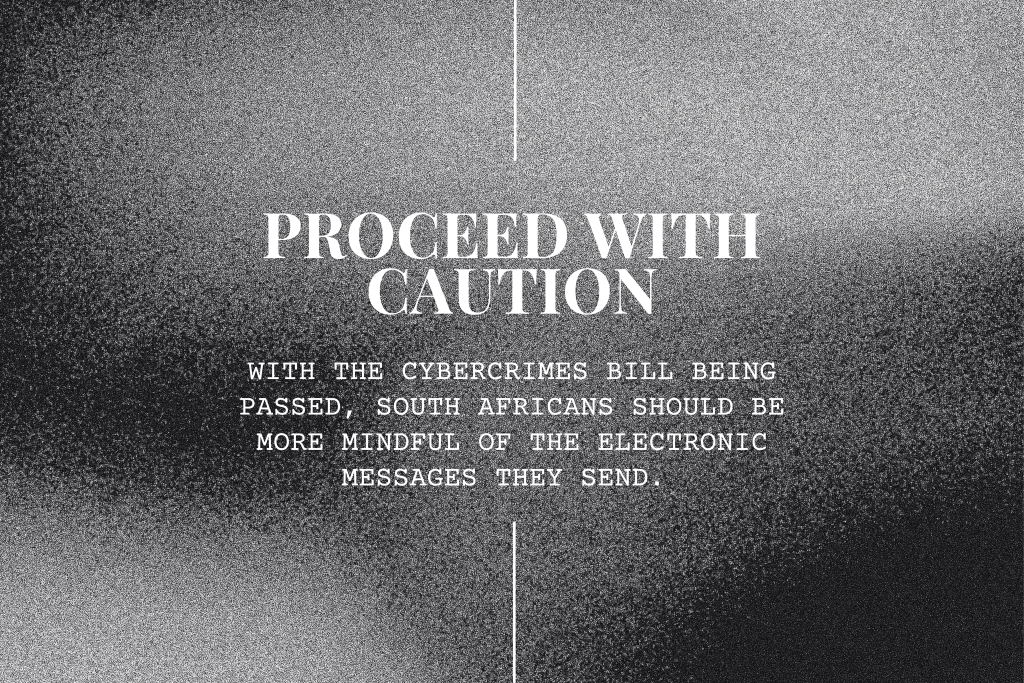ELECTRONIC COMMUNICATION: PROCEED WITH CAUTION

With the Cybercrimes Bill having been passed, South Africans should be more watchful of the electronic messages they send. The Bill aims to impose penalties on cybercrimes, to criminalise the distribution of harmful data messages, to provide for interim protection orders around these messages and to further regulate jurisdiction in cybercrime.
The impact of the Bill on ordinary South Africans can be seen in three ways. It criminalises data messages that possess the intention of causing damage to property, inciting violence, or involve the intentional and unlawful disclosure of intimate images of another person.
It is important to note that a reasonable-person test is used to determine whether a message is malicious. Thus, it does not matter whether the sender thinks it is malicious or not; if a “reasonable person” would perceive the data message as a threat, then the law sees the message as malicious.
Regarding intimate images of another, the bill sets out detailed guidelines on what constitutes an “intimate image”, when such an image is regarded as being disclosed, and when the disclosure is seen as unlawful.
An “intimate image” is the real or simulated depiction of a naked person, or the genital organs or anal region of a person, or the breasts of a female, transgender or intersex person. The bill states that even if all of these areas are covered up, the depiction could still be seen as an intimate image.
If a person can be identified as the individual being displayed in the image, then the image is regarded as a disclosure whether the person is directly identifiable, described in the message being displayed (even if not directly identifiable in the image), or can be identified from any other information. The disclosure is deemed unlawful if the person being displayed has a reasonable expectation of privacy at the time that the image is disclosed and if the disclosure violates or offends the sexual dignity of that person, or amounts to sexual exploitation.
The rules set out in the Cybercrimes Bill should be taken into consideration before forwarding any emails, social media or WhatsApp, Telegraph or Signal messages received. Electronic communication service providers and financial institutions are now obliged to assist in the investigation of a person that commits any of these offences, making it easier for perpetrators to be held liable.


